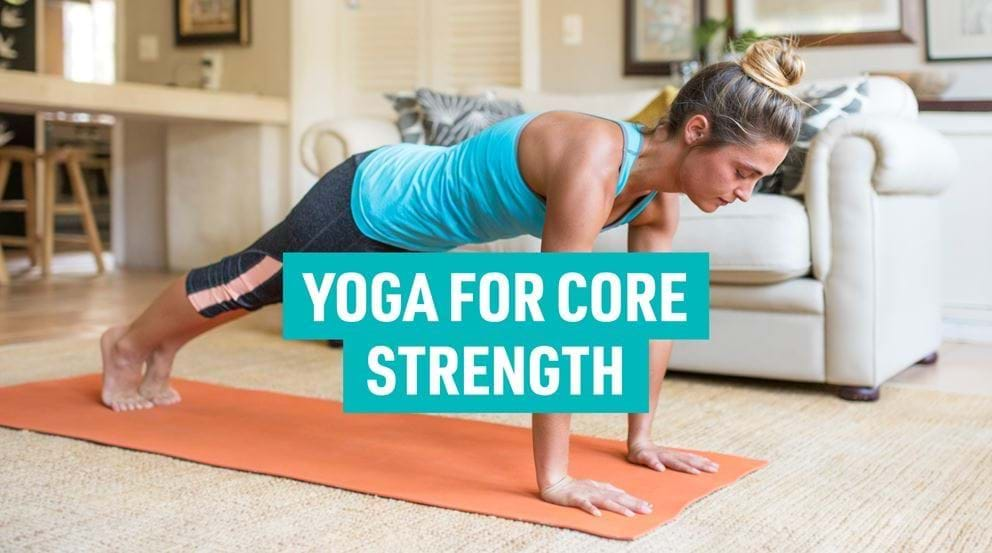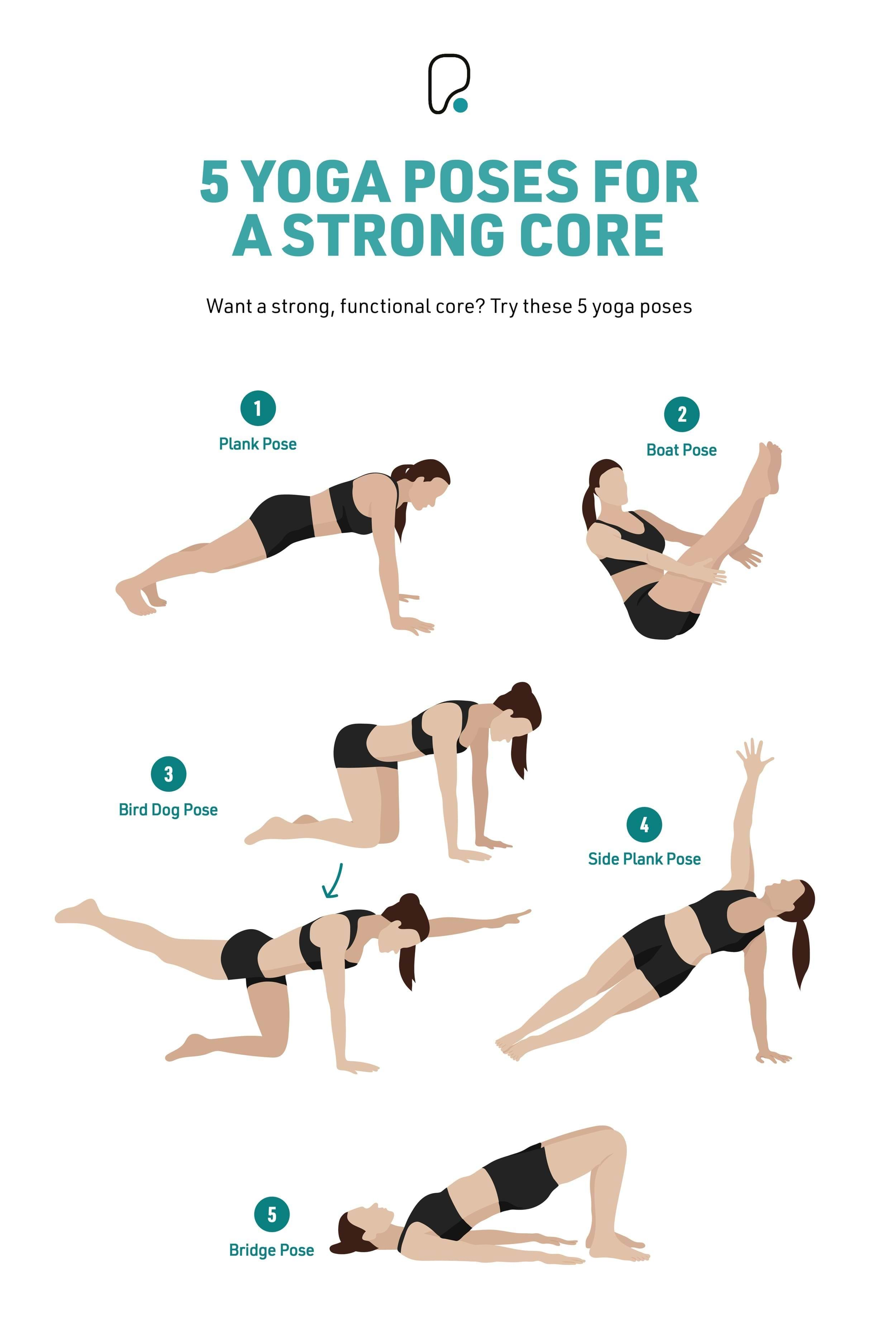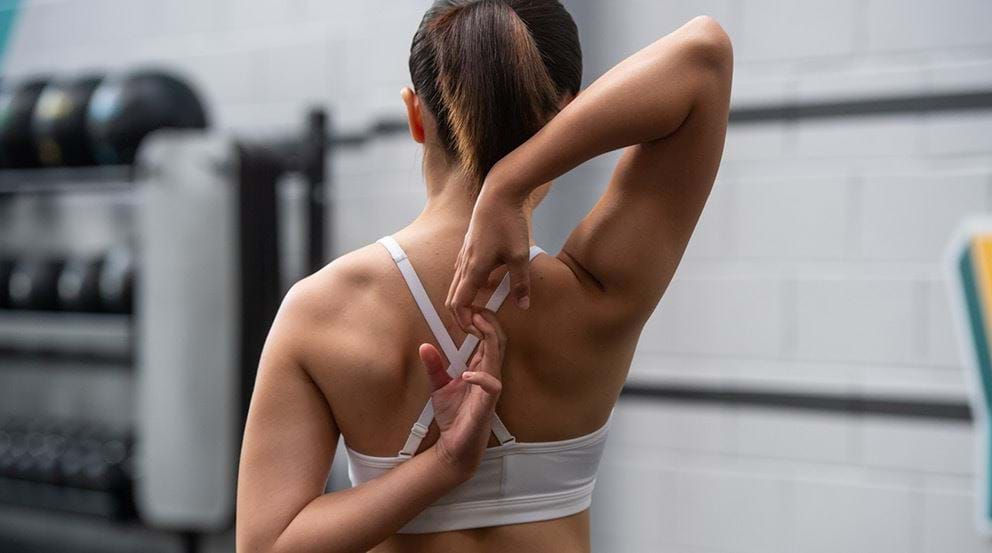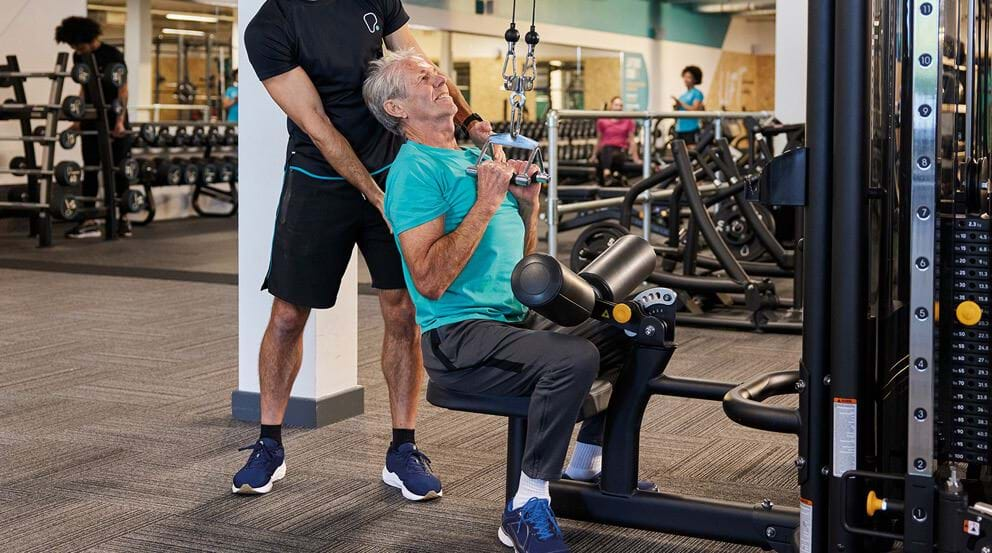Yoga for Core Strength: Building a Strong Foundation

How Yoga Builds Core Strength | Best Type Of Yoga For Core | Best Core Yoga Poses
Page last updated: 11th April 2023
What springs to mind when you think of yoga? For most people, yoga is seen as a gentle practice that can improve flexibility. However, the reality is much more complex than this!
Yoga is an ancient practice which encompasses the body, spirit, and mind. While there are multiple different types of yoga, all give a wealth of physical and mental benefits, including improved balance, flexibility, strength, and better mental health, reduced stress, and increased mind-body connection.
An often-overlooked benefit of the physical practice of yoga (the poses) is an improvement in core strength and stability. There are so many benefits to having a strong core -- better posture, improvement in back pain, heavier lifts in the gym, better sports performance, are just a few!
In this blog, PureGym Glasgow Clydebank Personal Trainer and qualified yoga instructor Steph Williams shares how yoga can help to build core strength, and gives some of the best poses to try for a stronger core.
How Does Yoga Build Core Strength?
The physical practice of yoga involves holding and flowing between a wide range of poses (asanas). Each asana requires the activation and engagement of a range of muscles in the body, including the muscles which make up the core -- the abdominals, lower back, hips, and glutes.
While some poses are more obviously linked to core strength (for example, boat pose or plank pose), holding and transitioning between almost all asanas builds strength, balance, and stability in the core, and you can build serious core strength practicing yoga without a sit up in sight! Even the warrior poses, which look simple, strengthen the core by challenging balance and strengthening the hip flexors and glutes.
Practicing yoga also helps to develop a stronger mind-body connection, including learning how to properly activate and engage the core, which builds greater core strength over time and helps to reduce injury risk, particularly to the lower back.
What Type Of Yoga Is Best For Core Strength?
There are many different types of yoga practice, from slower paced practices like yin yoga, to more energetic practices like vinyasa.
Almost all types of yoga will help to build core strength, but some which are particularly helpful are:
Vinyasa yoga. Often referred to as 'power yoga' due to its dynamic, fast-paced flow, vinyasa involves moving quickly between asanas while linking movement to the breath. Vinyasa yoga often involves more advanced yoga poses which challenge the core, but even vinyasa classes aimed for beginners are particularly good for strengthening the core as it requires a significant amount of engagement to keep the body strong and stable throughout the flow.
Ashtanga yoga. Ashtanga is fast paced, flowing, and combines asanas which directly and indirectly challenge the core, helping to improve core strength, stability, and balance. This is a tradition practice that involves performing a set sequence of asanas in a specific order, making it a great option for those who enjoy consistency and are motivated by performing the same exercises and monitoring how they progress over time.
Hot yoga. Hot yoga involves performing 26 poses in a heated room. Unlike vinyasa and ashtanga, hot yoga does not flow between poses -- instead, the challenge comes from getting into and holding each asana, some which require significant engagement of the core to achieve! The heat helps to relax the muscles which can allow people to go deeper into each pose.
What Are The Best Yoga Poses For Core Strength?
While all yoga practice will improve core strength, there are a few yoga core exercises and poses that are particularly challenging and can help to build strength quickly. You can weave these poses into your solo yoga practice, or work on them separately to improve core strength.

Plank pose (phalakasana). Begin in a tabletop position, with your hands and knees on the ground. Step your feet back, straightening your legs and lifting your hips to come into a high plank position. Transfer the weight of your body into the hands, draw your shoulder blades down your back and squeeze your inner thighs together to help remain strong in the pose. Work your core by making sure you engage your abdominal muscles, keeping your neck aligned with your spine and drawing your navel in towards your spine.
Boat pose (navasana). Begin in a tabletop position, with your hands and knees on the ground. Step your feet back, straightening your legs and lifting your hips to come into a high plank position. Transfer the weight of your body into the hands, draw your shoulder blades down your back and squeeze your inner thighs together to help remain strong in the pose. Work your core by making sure you engage your abdominal muscles, keeping your neck aligned with your spine and drawing your navel in towards your spine.
Bird dog pose (dandayamana bharmanasana). Begin in a tabletop position, with your hands and knees on the ground. Step your feet back, straightening your legs and lifting your hips to come into a high plank position. Transfer the weight of your body into the hands, draw your shoulder blades down your back and squeeze your inner thighs together to help remain strong in the pose. Work your core by making sure you engage your abdominal muscles, keeping your neck aligned with your spine and drawing your navel in towards your spine.
Side plank pose (vasisthasana). Begin in a tabletop position, with your hands and knees on the ground. Step your feet back, straightening your legs and lifting your hips to come into a high plank position. Transfer the weight of your body into the hands, draw your shoulder blades down your back and squeeze your inner thighs together to help remain strong in the pose. Work your core by making sure you engage your abdominal muscles, keeping your neck aligned with your spine and drawing your navel in towards your spine.
Bridge pose (setu bandha sarvangasana). Begin in a tabletop position, with your hands and knees on the ground. Step your feet back, straightening your legs and lifting your hips to come into a high plank position. Transfer the weight of your body into the hands, draw your shoulder blades down your back and squeeze your inner thighs together to help remain strong in the pose. Work your core by making sure you engage your abdominal muscles, keeping your neck aligned with your spine and drawing your navel in towards your spine.
Yoga can be a powerful tool for building core strength, and there are several different styles that can be particularly effective. By paying attention to your form and practising regularly, you can develop a strong and stable core that will support you in all aspects of your life.
Learn more about yoga with our Beginner Yoga FAQs Answered guide, and discover some of the best yoga poses for beginners here as well as the best yoga for runners here. We also offer advice on some of the best non-yoga core exercises here.
If you're a PureGym member, you can join our yoga classes, or you can book time with a personal trainer to discover other ways to strengthen your core.


